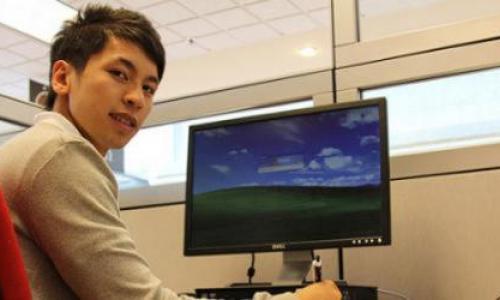
Navigating the job market today is not an easy task. Application processes are becoming longer, qualifications that you may need are becoming greater, and there’s sometimes not as many jobs available at some times of the year. With all of this occurring, it is important to stay levelheaded and continuously strive for the best when out on a job search. For example, even if you don’t get the job you wanted and interviewed for, it’s important to realize the significance of getting to the interview stage in the first place.
And that is the first part of Creating Your Own Luck (CYOL) – optimism. It’s you realizing that there are opportunities out there for you, even if you may feel like there aren’t. The effort you take when applying to tens if not hundreds of jobs may feel like it’s wasted – even more so if you don’t receive a reply – but what if that one recruiter looks at your resume/cover letter and thinks, “this is our candidate”? That one phone call or email will make you realize that no effort was wasted. After all, you don’t have anything to lose by applying.
That brings us to the next point about Creating Your Own Luck, which is flexibility. Flexibility is an asset employers highly value – it’s even something employees themselves can use to boost productivity. Being flexible isn’t just about taking any opportunity that arises, but rather about adapting your thinking to the opportunity that is available, and visualizing ways that opportunity can allow you to grow professionally. For example, while it was a personal choice, Steve Jobs’ interest in calligraphy made him obsessed with typesetting on the initial Macintosh computer – one of its most significant features at the time. Similarly, using experience you have learned from more unrelated jobs can enable you to excel at your chosen career option when you do get a job more related to your major.
But you are more than your major. For all you know, you might be passing up an opportunity that appears to be unrelated to your major (perhaps based on the job title), but in fact may have everything to do with your major and interests. Taking the ‘plunge’ into such an opportunity is what we like to call ‘taking risks’. After all, if you find yourself not taking action to explore new possibilities or passing over opportunities because of your low risk tolerance, it may be time to re-examine your ability to take risks. While this may sound a bit alarmist, it may truly be holding you back – remember happenstance? The risk you’re not taking could be the one that ends up being the one that jumpstarts your career.
Curiosity also goes hand-in-hand with risk taking. Curiosity allows you to ask all the “what-ifs” before you take that risk, and enables you to learn more about an opportunity before you simply accept it without looking at what you would gain during your time at that particular job. Curiosity is also about career exploration and seeing what interests you the most as a future occupation. You can book a one-on-one session with one of our advisors at Career Services, and they can help you research areas of interest or abilities; details on specific careers; and fields or employers you may want to consider for employment. Curiosity can even be as simple as sitting down one day and taking the time online learning about what’s involved in a typical work day for your chosen career possibilities, or perhaps connecting in-person with an industry professional and getting more of an insider look.
Finally, persistence is essential to anything you’re doing, most certainly if it’s related to exploring your career options. Persistence could be as simple as following-up with an employer after an interview (or submitting a job application), and not taking that extra step could make you miss out on a chance to create a personal connection with the employer. For example, what if you’re the only one who sends a post-interview message to the employer, thanking them for their time and consideration? That one message could set you apart from other candidates, and ultimately land you the job. After all, the more you persist, the more likely you are to succeed, and persistence in the face of adversity is a sign of someone who is willing to go the extra mile – something employers love to see.
So there you have it, five highly effective competencies of Creating Your Own Luck. Remember, the thing that motivates you the most is yourself, so following some (or all) of these competencies could finally put you in that job you’ve always coveted.













